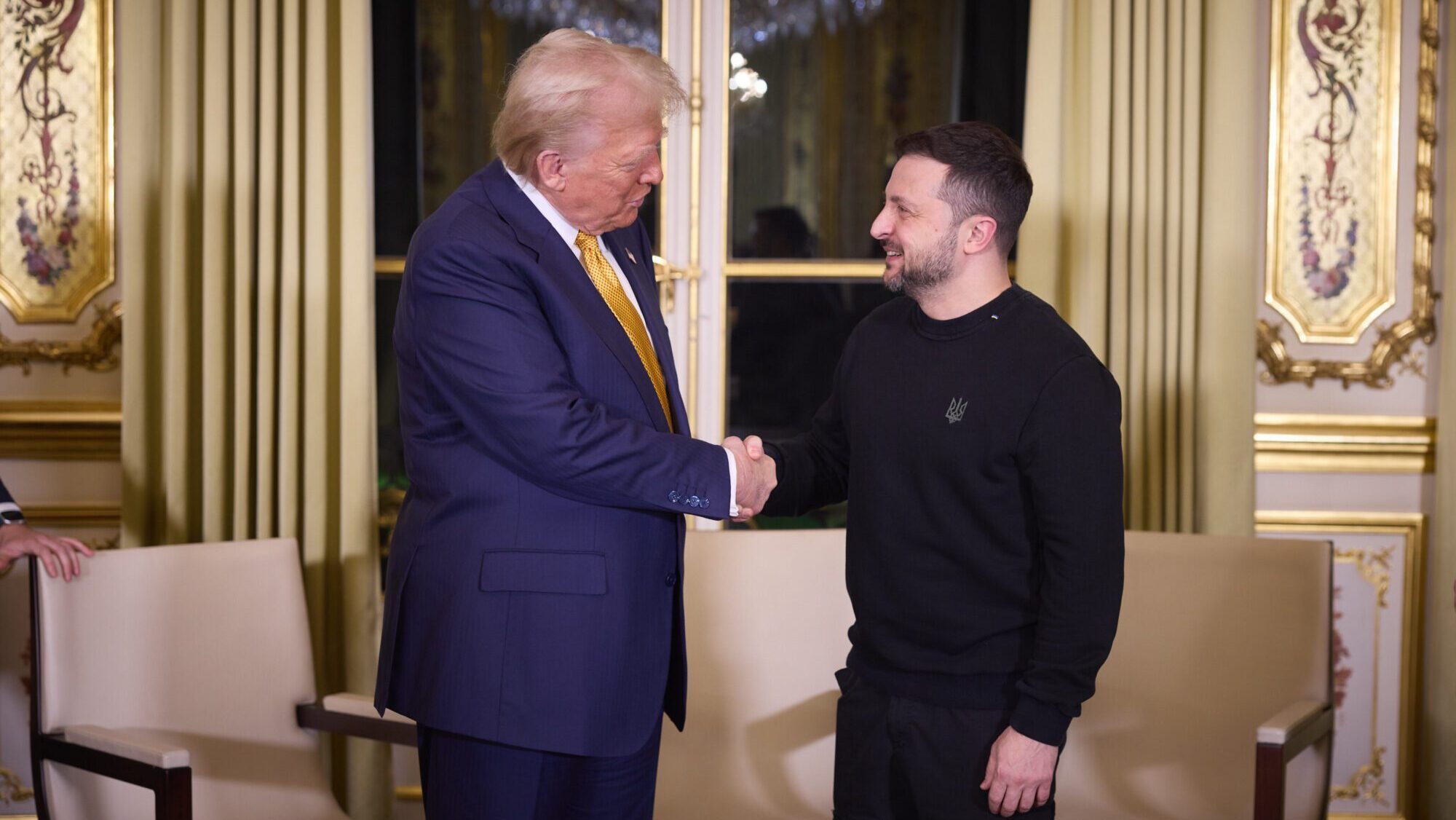
U.S. President-elect Donald Trump and Ukrainian President Volodymyr Zelensky.
On Sunday, December 8th, U.S. President-elect Donald Trump said fighting between Ukraine and Russia must end, followed by negotiations for peace.
Trump made his comments after meeting Ukrainian President Volodymyr Zelensky and French President Emmanuel Macron in Paris on Saturday, where he attended the reopening of the Notre-Dame Cathedral.
Writing on his Truth Social account, Trump said:
Zelensky and Ukraine would like to make a deal and stop the madness. …There should be an immediate ceasefire and negotiations should begin. … I know Vladimir [Putin] well. This is his time to act. China can help. The World is waiting!
He added: “Too many lives are being so needlessly wasted, too many families destroyed, and if it keeps going, it can turn into something much bigger, and far worse.”
It is well-known that in contrast to the current U.S. Administration, which has spent more than €88 billion in military, financial, and humanitarian aid to Ukraine since the start of Russia’s invasion almost three years ago, Trump wants to pursue a more non-interventionist foreign policy and has promised to end the war as soon as possible.
How he intends to do that once he enters the White House on January 20th is still a mystery, but with the possibility of U.S. aid being pulled altogether, Zelensky may have to accept a deal on Trump’s terms.
Asked in an interview with NBC whether the U.S. would cut funds to Ukraine during his presidency, Trump said: “Possibly. Yeah, probably, sure.”
Russia controls about a fifth of Ukraine’s territory—including the Crimean peninsula it annexed ten years ago—and its troops are slowly but steadily occupying more and more territory captured in eastern Ukraine. They seized more than 725 square kilometres of land in November and 610 square kilometres in October.
In a potential peace deal, Moscow would want to retain the areas it has occupied (large swathes of the Donetsk, Luhansk, Zaporizhzhia, and Kherson regions) as well as get guarantees that Ukraine would never become a member of NATO.
Faced with the reality on the various battlefronts, and the likelihood of reduced U.S. involvement in Ukraine, it seems as though Zelensky is more willing to strike a peace deal now than ever before. He has floated the idea of temporarily giving up Russian-controlled areas in exchange for NATO security guarantees and weapons deliveries from the West.
Assessing his meeting with Trump, the Ukrainian President wrote on his X account:
We need a just and enduring peace—one that the Russians will not be able to destroy in a few years, as they have done repeatedly in the past. It cannot simply end with a piece of paper and a few signatures. A ceasefire without guarantees can be reignited at any moment, as Putin has already done before.
Yesterday, I visited President @EmmanuelMacron at the Élysée Palace and had a good meeting with President @realDonaldTrump.
— Volodymyr Zelenskyy / Володимир Зеленський (@ZelenskyyUa) December 8, 2024
We discussed important issues on the battlefield and in the global situation, from our frontlines to North Korea. I stated that we need a just and enduring…
Responding to Trump’s call for peace, the Kremlin said it was open to talks, but that peace negotiations would have to be based on the current battlefield realities.
Meanwhile, the leader of the opposition in Germany, the second largest provider of financial and military aid to Ukraine, arrived in Kyiv on Monday, December 9th, to pledge his support for Ukraine.
Friedrich Merz’s centre-right CDU party is on course to win the snap elections in Germany in February, As chancellor, he would have a more hawkish approach to the war, possibly providing Ukraine with long-range Taurus missiles—something that current Chancellor Olaf Scholz has refused to do out of fear of provoking Russia.
Speaking in Kyiv, Merz said:
If our support for Ukraine weakens, then this war will last longer. If our support for Ukraine is consistent, then this war will end more quickly.
